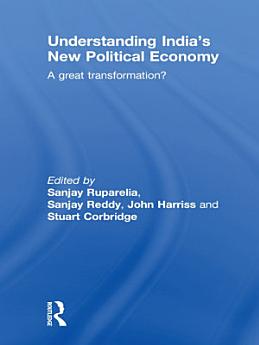Understanding India's New Political Economy: A Great Transformation?
About this ebook
Filling a gap in existing literature, the book goes beyond looking at the transformations in isolation, managing to:
• Explain the empirical linkages between these three phenomena
• Provide an account that integrates the insights of separate disciplinary perspectives
• Explain their distinct but possibly related causes and the likely consequences of these central transformations taken together
By seeking to explain the causal relationships between these central transformations through a coordinated conversation across different disciplines, the dynamics of India’s new political economy are captured. Chapters focus on the political, economic and social aspects of India in their current and historical context. The contributors use new empirical research to discuss how India’s multidimensional story of economic growth, social welfare and democratic deepening is likely to develop. This is an essential text for students and researchers of India's political economy and the growth economies of Asia.
About the author
Sanjay Ruparelia is an Assistant Professor of Politics at the New School for Social Research in the US. His current research examines the politics of the broader Indian left in contemporary Indian democracy in the wake of economic liberalization and Hindu nationalism.
Sanjay Reddy is an Associate Professor of Economics at the New School for Social Research in the US. His areas of work include development economics, international economics and economics and philosophy.
John Harriss is Professor of International Studies at Simon Fraser University, Canada. His current research concerns India's social policy in the context of liberalization.
Stuart Corbridge is Professor of Development Studies at the London School of Economics and Political Science, UK. His previous publications include Reinventing India: Liberalization, Hindu Nationalism and Popular Democracy (2000, with John Harriss).








